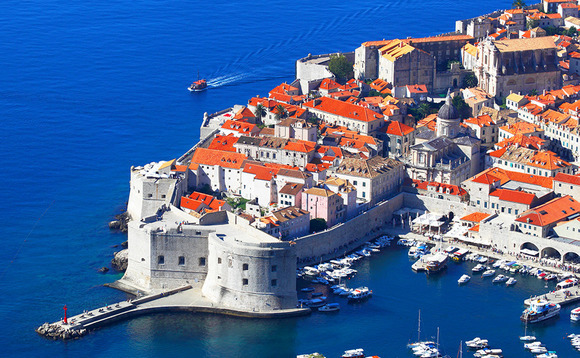
Western Balkans buyout activity likely to remain sporadic

Efforts to strengthen links between the Balkan countries will likely boost investment activity, but private equity dealflow is expected to remain patchy in the short-term. Mikkel Stern-Peltz reports
Efforts are underway to expand public market infrastructure in Croatia and the western Balkans, as a means of stimulating investment and improving the region's economy and trade links.
Vedrana Jelušic Kašic, director for Croatia at the European Bank for Reconstruction and Development (EBRD), and Zagreb Stock Exchange president Ivana Gažic recently co-authored an article on the development of public markets in the region. The cross-border SEE Link, which connects the Croatian, Bulgarian and Macedonian stock exchanges, will become operational by the end of the quarter and an inclusion or acquisition of the Ljubljana stock exchange is on the table for later in 2016.
It is hoped the links will not only provide broader access to financing for companies in the region, but also establish Croatia firmly as the main link between the western Balkans and its largest trading partner, the European Union.
Meanwhile, the region's private equity climate remains tepid at best, with only stuttering dealflow seen in the past five years. Whether the region will be able to sustain a consistent level of buyout deal volume if public markets help grow investment levels remains to be seen.
"From the point of view of investors, it's a small region," says EBRD's director of equity funds Anne Fossemalle. "Investors are not rushing to emerging markets at this moment and when looking at emerging markets, emerging Europe is not a priority, which is a shame because we believe there are good vintages of funds coming through and good and experienced fund managers."
The reality is there aren't many companies of that scale in the region to attract international institutional investors, and privatisations are mooted" – Anne Fossemalle, EBRD.
She says the region is unlikely to become a substantial target for outside investors in the foreseeable future: "The reality is there aren't many companies of that scale in the region to attract international institutional investors, and privatisations are mooted."
Since 2010, a handful of large deals by more international players have provided some spikes in an otherwise rather barren transaction graph. Most recently, Mid Europa Partners joined forces with Blue Sea Capital – a regional GP focusing on investments in the former Yugoslavia - to acquire Serbia's Danube Foods from Salford Capital in a deal estimated to be worth €100-250m.
Croatia and the western Balkans appear to attract international attention every few years, evidenced by KKR's €1bn buyout of Serbian TV company SBB in 2013, but local players have had a difficult time in establishing any sort of significant private equity presence.
Historical hindrances
Generally, consolidation strategies played out across these countries remain difficult because of historical tensions and cultural differences between nations. The western Balkan region's total trade with the EU still only amounts to less than 1.5% of overall EU trade, according to the European Commission, thereby limiting the number of assets with multinational reach or potential.
"There are certainly opportunities for private equity on the smaller side," says Fossemalle, who argues the region is a better fit for private equity than for the public market, due to the typically small nature of local companies.
And the region's authorities have been aware of this for some time. In 2011, the Croatian government established a programme aimed at boosting private equity in the country. However, success was limited as the government sought to influence the GPs' investment strategies and only one fund launched in conjunction with the programme remains active.
Croatia and the western Balkans are showing embers of what could eventually evolve into a viable private equity industry. Some local M&A houses and advisory firms have been looking to raise capital and invest as GPs, and money is available through pools of capital managed by the European Commission-backed western Balkans Enterprise Development & Innovation Facility; the Enterprise Innovation Fund focused on early-stage innovative companies; and the Enterprise Expansion Fund, focused on providing capital to expansion-stage SMEs.
For now, though, what remains is a stuttering market with no clear suggestions of an impending boom.
Latest News
Stonehage Fleming raises USD 130m for largest fund to date, eyes 2024 programme
Sponsor acquired the public software group in July 2017 via the same-year vintage Partners Group Global Value 2017
Stonehage Fleming raises USD 130m for largest fund to date, eyes 2024 programme
Czech Republic-headquartered family office is targeting DACH and CEE region deals
Stonehage Fleming raises USD 130m for largest fund to date, eyes 2024 programme
Ex-Rocket Internet leader Bettina Curtze joins Swiss VC firm as partner and CFO
Stonehage Fleming raises USD 130m for largest fund to date, eyes 2024 programme
Estonia-registered VC could bolster LP base with fresh capital from funds-of-funds or pension funds









